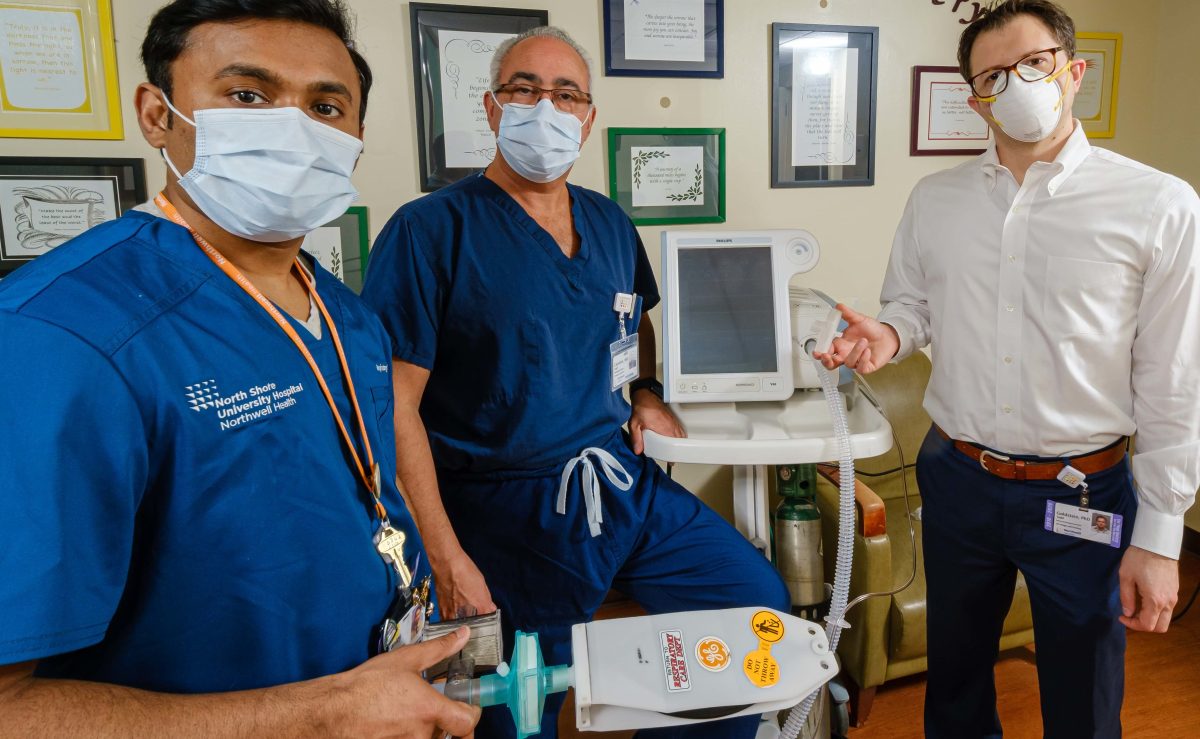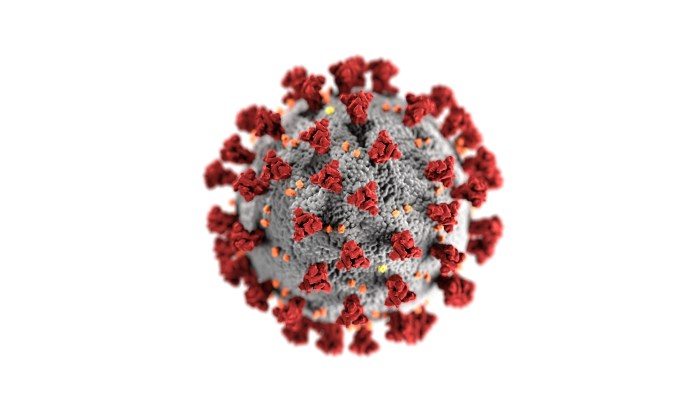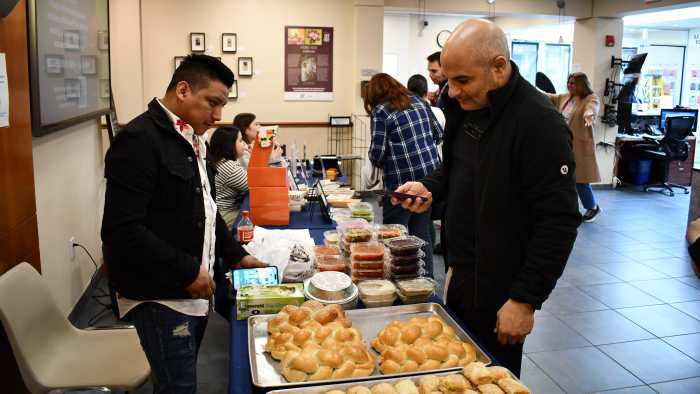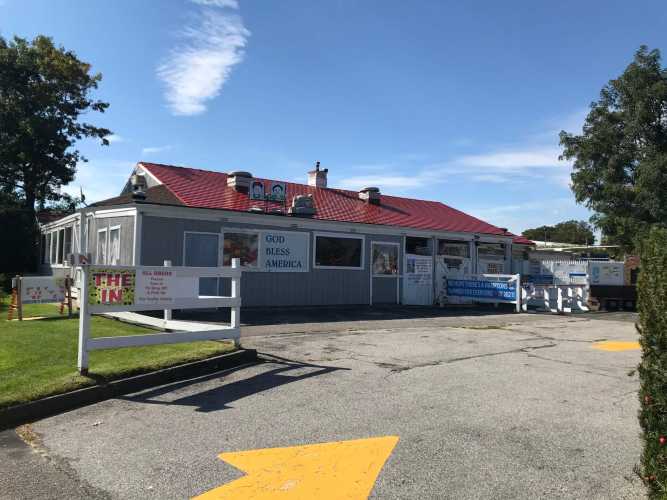In March, soon after the pandemic hit New York hard, Northwell Health held a virtual press conference, unusual in itself, with executives socially distanced as they announced three clinical trials related to Covid-19 treatments.
“We’re all living in a new reality,” Northwell Health President and CEO Michael Dowling said. The three trials launched within weeks, not months.
Healthcare workers since then have continued fighting on the front lines of Covid-19 in a kind of accelerated reality where hospitals in addition to providing care have had to use new ways to treat and fight the pandemic. While the story of heroism in hospitals has been widely told, their roles in innovation, from supplies to treatment and trials, is a big part of the story.
Amid supply shortages, hospitals began building what they couldn’t buy. Facing potential nasal swab testing shortages, Northwell teamed with the University of South Florida Health, 3D printing company Formlabs, and Tampa General Hospital to make 3D printed nasal swabs to test for Covid-19 in patients.
Stony Brook University used 3D printers to make face shields to protect healthcare workers rather than only seeking to purchase.
“We are doing something positive to protect the health of the medical professionals that are helping the community,” Charlie McMahon, Stony Brook University’s interim senior vice president and enterprise chief information officer, said.
Amid a concern over a possible ventilator shortage early on, Northwell developed a system to convert BiPAP machines used for sleep apnea into makeshift ventilators.
“I knew we could develop a way to repurpose and convert these machines,” Dr. Hugh Cassiere, medical director for respiratory care services at North Shore University Hospital, said.
While hospitals sought to overcome shortages, they also went full speed ahead with clinical trials well beyond those they announced in March.
Northwell’s Feinstein Institutes for Medical Research (FIMR) created a Covid-19 Clinical Trial Unit that the system describes as a 200-member rapid-response clinical trial group to review and set up therapeutic clinical trials.
FIMR launched more than half a dozen clinical trials and programs including those for famotidine, remdesivir and monoclonal antibody sarilumab, and joined the Mayo Clinic’s convalescent plasma initiative. Northwell enrolled more than 1,200 patients in Covid research trials across the system
“The results of our research findings were published in more than 200 manuscripts,” said Matthew Libassi, a Feinstein spokesman.
Hospitals also worked to ramp up, and improve, testing. Northwell Health Labs in September said that since the pandemic hit it has spent more than $30 million to increase Covid-19 testing, boosting volume and improving procurement.
“Our goal has been to deploy at scale as much testing as possible,” said Dr. Dwayne Breining, executive director of Northwell Health Labs. “As various supply chain issues have emerged, maintaining multiple testing platforms has been a successful mitigation strategy.”
Northwell Labs is currently processing about 7,000 molecular nucleic acid amplification tests and an additional 3,000 antibody tests daily.
Northwell researchers also are seeking to develop a new Covid-19 test that can process three times the number of patients currently served.
“We hope that providing another testing option to detect SARS-CoV-2 with a clinically validated set of reagents will assist in this effort at a time when supply chain has been a major issue,” Gregory J. Berry, director of Northwell Health’s Division of Infectious Disease Diagnostics, said.
Northwell Health Labs also is part of a multiyear Feinstein Institutes $11.3 million grant to develop and deploy Covid antibody tests, as the system seeks to scale up to meet demand.
“We must develop more efficient and accurate antibody tests and integrate them with a deeper understanding of the disease,” Dr. Peter Gregersen, a professor of molecular medicine and investigator at the Feinstein Institutes, said.
Healthcare providers also changed approaches, finding that proning, placing patients temporarily on their stomach, can assist with breathing.
“We utilized proning in an efficient manner,” said Dr. Sahar Ahmad, director of ultrasound and critical care education at Stony Brook School of Medicine. “Proning is not beneficial to all patients with this condition, but we started to get more efficient with those for whom we applied proning.”
Hospitals also have had to innovate to obtain and distribute supplies. Northwell shifted employees at its more than 85,000-square-foot distribution center, the Integrated Distribution Center in Bethpage, from six days a week to every day when needed in the pandemic. This kept a steady stream of gloves, masks, syringes and isolation gowns flowing to hospitals.
“They increased truck capacity coming and going and things were flying off the shelves,” Libassi said. “They work hand in hand with procurement to ensure that supplies don’t run out in any of our 23 hospitals.”
The system ordered and stocked its shelves with four times the amount of supplemental vaccine supplies such as gloves, masks, alcohol swabs, and syringes than would be used in an ordinary year.
Stony Brook took steps to maintain employees’ mental health as stress soared. And Northwell, the largest private employer in the state, says it worked hard to maintain its employees’ health, including a mask mandate, mental health services, and other programs.
“We developed materials parents can use to explain to their kids what Covid is all about and helped with childcare support,” Libassi said. “We’re now working on vaccine rollout for those first up/at risk and then going from there.”
For more coronavirus coverage, visit longislandpress.com/coronavirus
Sign up for Long Island Press’ email newsletters here. Sign up for home delivery of Long Island Press here. Sign up for discounts by becoming a Long Island Press community partner here.






























